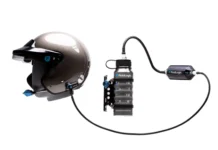
Most movies or even seasons show policemen and private investigators working together to expose the criminal and this has made people believe that they both perform the same tasks. Although there may be some similarities between their job roles, the profession of a police officer is quite different from a private investigator. Policemen can be contacted by visiting the state’s police station, whereas private investigators usually work with private firms. For instance, TruthPrivateInvestigators is an Australian company with several professional and experienced private investigators who can be easily accessed online.
Now, you may be wondering about the difference between a police investigation and a private investigation. Keep reading this article to learn!
What Does a Private Investigator Do?

A private investigator, also known as a private detective, doesn’t look after criminal cases. Instead, they are involved in financial, personal, and legal matters. Their job is more based on gathering information to help their clients get to the root of the situation.
Some of the responsibilities of a private investigator are:
- Going undercover to investigate a case.
- Thoroughly researching records of suspects, such as social media accounts, background checks, source of employment, etc.
- Interviewing people involved in the case to find the missing answers.
- Contacting their clients to keep them updated on the progress of the case.
- May also be involved in testifying in court.
- May also work together with the police to uncover the suspect.
What Does a Police Officer Do?

A police officer works for the peace of the country by maintaining law and order. Therefore, they deal with criminal cases in their state to handcuff the lawbreakers.
Whenever a case is filed with them, they are responsible to take every legal action as quickly as possible to ensure the criminal is arrested. As they have the right to arrest criminals, they need to investigate the case by obtaining confessions from people involved in the case and interrogating the witnesses.
Therefore, it can be said that a police investigation assists the judge to take the right decision for their state by making the case easier to be solved with the help of reasonable legal evidence.
Differences between a Police Officer and Private Investigator
No matter how similar the nature of both professions may seem, there are several differences as mentioned below.
1. Demand and Salaries
Over the years, the demand for private investigators has significantly surged. Even police officers who retire from their job tend to become private investigators down the line.
Even the salaries of a private investigator are slightly higher than police officers. According to Indeed, private investigators in the US earn $25.82/hour whereas police officers earn $24.50/hour. Of course, the pay rates vary according to the years of experience as well.
2. Prior Experience
As private investigators don’t work with the government, they have to be very cautious in obtaining evidence. For this, many companies prefer a private investigator with some prior law enforcement experience so the evidence is deemed legal in the court or to avoid any problems down the line.
As far as police officers are concerned, they need to complete training from the state’s police academy to be eligible for working at their designated position.
3. Other Requirements
Police officers need to fulfill specific requirements laid out by their state such as minimum age limit, citizenship, and other physical and written exams.
On the other hand, the requirements for private investigators are generally more relaxed and it depends from firm to firm. However, they must have at least a bachelor’s degree and possess other soft and technical skills for added efficiency at work.
How Does a Police Investigation Differ From a Private Investigation?

Now that you are well aware of the job requirements and roles of police officers and private investigators, let’s take a look at how a police investigation is different from a private investigation.
1. Workload
As police officers serve their state, local or federal government, they may be bombarded with several cases at once. Some cases may take time to get resolved, whereas, other critical cases such as murder or terrorism require quick processing for the safety of the country.
Therefore, police officers may not be able to devote their maximum time and effort to each and every single case handed over to them.
In terms of private investigators, they either work on a freelance basis or work for insurance firms, legal firms, private firms, and even large businesses. So, it’s up to them how many clients they can take on at once.
This allows private detectives to give their level best to their assigned tasks to resolve the client’s case as soon and smoothly as possible.
2. Budget Constraint
The source of funding for law enforcement is merely local taxes, hence, police officers work according to their budget and this determines how quickly a case is solved.
Whereas, private investigators don’t have to fret about the budget as their clients are responsible for the finances. Therefore, if a client’s budget is higher, the private detective can invest additional resources in the case for a quick resolution.
3. Other Legal Factors
Private investigations can be, at times, restricted by legal requirements. For example, a private investigator can’t force law on someone as they don’t have any legal authority to do so.
Moreover, they can’t unlawfully investigate someone as long as they are themself not willing to answer their questions. Evidence should be obtained in a legal manner to be eligible in court. They can’t also possess and use weapons until or unless they have a license.
Police officers don’t have to really worry about such legal requirements as they have the right to possess weapons, interrogate witnesses, do surveillance, and even arrest perpetrators with the help of obtained evidence.
What are the Similarities in Police and Private Investigations?
Irrespective of the difference in police and private investigations, one primary similarity between them is that they both involve gathering relevant and reliable information and evidence that can help the ultimate party.
For police officers, that party can be the judge. Whereas, for private investigators, it can be their client.








